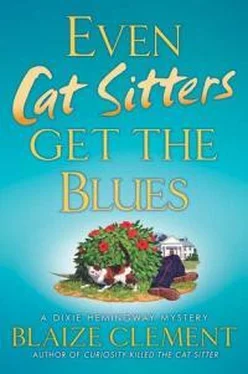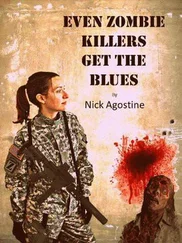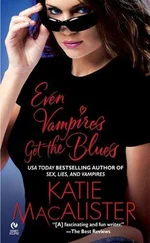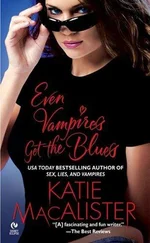I said, “Are you the one who hit me last night?”
Her eyes closed for a moment as if she couldn’t face me. “No, that wasn’t me.”
“But you were there.”
“I set the fire behind the house. It was contained and harmless. I wanted to draw attention, to bring fire trucks and police to the house.”
My head was throbbing in rhythm with the waves lapping at the shore.
“So who hit me?”
“The same person who would have killed Ken Kurtz if I hadn’t interfered with his plans.”
“What a load of melodramatic crap! If you know who hit me, you have an obligation to tell me. Or at least tell the police.”
“I can’t tell you anything more. I’ve already told you too much. If they ever find out I set that fire—”
She broke off and looked down at her clenched hands.
“They? They who?”
“I can’t tell you that. All I can tell you is that it’s not a simple matter of two opposing sides in conflict.”
I said, “I told him I’d seen you.”
Her jaw firmed. “And what did he say?”
“He said you were dead, that you died two years ago.”
She looked startled. “He abandoned me! Ran off and left me to die.”
“He has your picture next to his bed.”
All the color drained from her face, and her eyes glazed with shock. I was almost moved to feel sorrier for her than I felt for myself.
Softly, she said, “There was a time when I loved him more than I ever thought it possible to love another human being.”
It’s the damnedest thing, but ever since I became more loosely put together, people have started spilling things to me that they shouldn’t. Maybe they sense how close to the outer borders of sanity I’ve been, so they know I’m in no position to judge anybody else’s lapses of good sense. This woman had brought me here practically at gunpoint, but now she was talking as if we were having drinks together and discussing old loves.
“Is that why you wanted to talk to me? To tell me you and Kurtz used to be lovers?”
Her eyes met mine and she made a little moue of embarrassment. “I know somebody phoned you with a message to give to Ken. Have you given it to him?”
The bitch had a nerve. The only way she would know the Irishman had called me was if she was in cahoots with him.
“Why don’t you give him the message? Why don’t you just call him yourself?”
“They have his phone tapped. And if they knew I was trying to help him, I would be in as much danger as he is. Maybe more.”
There was that they again.
I said, “What’s Ken Kurtz’s connection with BiZogen Research?”
Her eyes widened. “Your reputation is correct. You’re quick.”
“I’m also the prime suspect in the murder of Ken Kurtz’s guard, I have a concussion from being hit in the head at his house, and I resent the hell out of the way you’ve used me.”
Her eyelids fluttered for an instant, and I could feel her fatigue. “I can’t tell you about BiZogen, but I can tell you that Ken is in grave danger. It’s imperative that you give the message to him.”
The woman had to be either a complete wacko or something like the head of Army Intelligence. Maybe both. In either case, I felt like a slippery avocado seed skewered with toothpicks and set to hang in a cup of water.
I said, “I’m planning to do that tonight. But how do I know they won’t come after me?”
“They know you go there to take care of the iguana. They’d never suspect that you had any information for Ken.”
I said, “The homicide detective traced your car’s tags. Did you steal it?”
She smiled suddenly, and the smile made her look softer.
“I’m not a car thief,” she said. “I just took what was provided.”
“By them ?”
She smiled again and got up. “Thank you, Dixie. I’ll see you again. Oh, and one other thing. I’m sure you’ll tell the homicide detective that we’ve met, and that’s okay. But if anybody else should ask, please don’t give me away.”
Sweet Jesus, the woman seemed to think we were friends and that I would protect her secrets.
She walked away rapidly, breaking into a jog as she went toward the steps to the parking lot. By the time I got to the Bronco, she had completely disappeared and my head was threatening to blow up.
I called Guidry again and left another message, then made the drive home and dragged myself upstairs to my apartment. I immediately fell into bed and unnaturally hard sleep.
I dreamed that Ken Kurtz and I were having tea in his red-dimmed wine room, drinking from Cora’s cups and eating her chocolate bread with our tea. The wine bottles seemed to be leaning in to listen, and the room was so cold I was shivering, but Kurtz didn’t seem to be bothered. The calico kitten was nestled in my lap, kneading at me with its sharp little claws, and I was afraid Ken would see it and rip out the kitten’s fingertips.
I said, “You’re very hearty, aren’t you?”
He said, “You mean hardy. I’m very hardy.”
I hadn’t meant hardy at all, but I said I did because I was afraid of him.
My racing heart woke me up, and for a few seconds I had to remind myself it was just a dream. Then I came fully awake and began to wonder why I’d had the dream at all. I believe in dreams. I believe they’re messages from our unconscious that we should pay attention to. But I couldn’t find a meaning in this one, and after a while I turned over and went back to sleep.
I slept until my inner clock told me it was time to get ready for my afternoon visits. A hot shower helped me get oriented and ready for the rest of the day, and I took a little more care when I got myself presentable. Put on a little blush to counteract my concussion pallor, brushed my eyelashes with mascara, left my hair hanging to my shoulders, and made sure my faded jeans were the ones that brought out the best in my butt. When I backed the Bronco out of the carport, I headed for the key’s business district. Since I wasn’t going to run with Billy Elliot, I had some extra time, and I wanted to see Ethan Crane before I got covered in cat hair.
SEVENTEEN
Siesta Key’s business district is known to locals as the Village. On the front side of the Village, real estate offices squeeze between ice cream parlors and boutiques, and upscale cafés share parking spaces with funky tourist shops selling plastic flamingos and Siesta Key T-shirts. Ethan’s office is in a dingy stucco building on an unfashionable side street. I parked at the curb and nodded hello to a man sitting on the sidewalk nursing a ragged military duffel bag. He looked homeless, but Christmas-wrapped packages poked through the holes of his bag as mute testimony to connections to somebody somewhere.
The building’s corners looked even more chipped than the last time I’d been there, and when I pulled open the the glass-topped entrance door, I saw it was still etched with his grandfather’s name, ETHAN CRANE, ESQ. Ethan apparently had seen no reason either to change the sign or spruce up the building when he inherited it.
A small vestibule inside the door led to a flight of stairs whose every step had been worn slightly lower in the center from decades of climbing feet. At the top of the stairs, a broad corridor stretched toward Ethan’s office, with another office to the left where a plump secretary with white-streaked hair sat at a desk facing the door. Christmas cards hung on a string in a drooping line across the front of her desk, and a miniature Christmas tree with miniature electric lights glowed on her windowsill. She looked up with raised eyebrows when she saw me, but Ethan’s door was open and I headed straight back without giving her a chance to stop me.
Читать дальше












